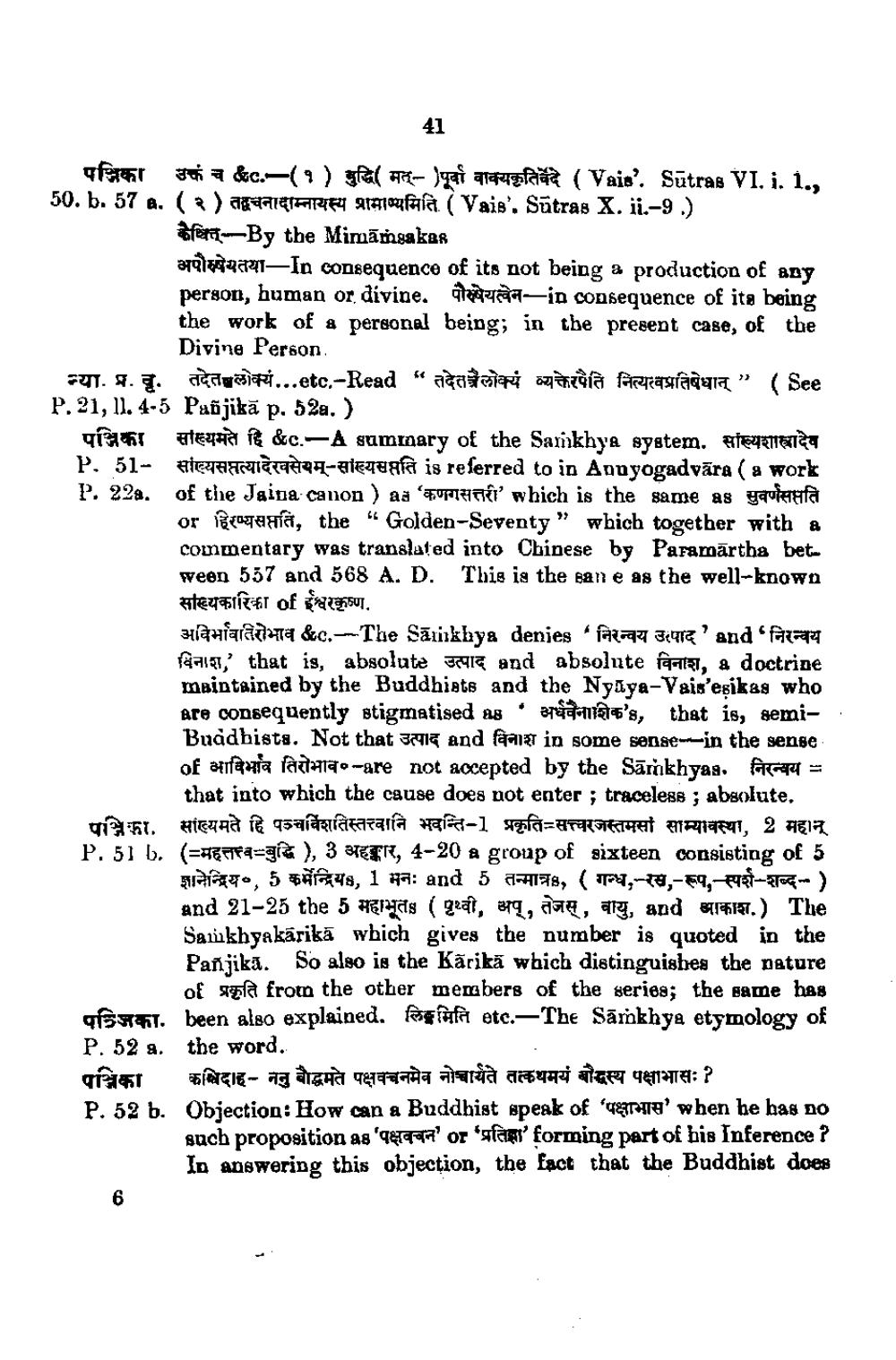________________
after a &c.—(9) gfal lai augalaia ( Vais'. Sūtras VI. i. l., 50. b. 57 a. (2) FIREY 41aofala. ( Vais'. Sūtras X. ii.-9.)
rom-By the Mināmsakas a112741—In consequence of its not being a production of any person, human or divine. hocaat-in consequence of its being the work of a personal being; in the present case, of the
Divine Person FYT. 8. q. dagai...etc.-Read “naisia zarzuia fateteauagana ” ( See P.21, 11. 4-5 Pañjikā p. 52a. )
पञ्जिका सांख्यमते हि &c.-A summary of the Samkhya system. सांख्यशास्त्रादेव P. 51- सांख्यसप्तत्यादेरवसेयम्-सांख्यसप्तति is referred to in Annyogadvāra (a work P. 22a. of the Jaina canon ) aa 'Aurigaki' which is the same as gaulanta
or iragania, the “Golden-Seventy" which together with a commentary was translated into Chinese by Paramārtha bet ween 557 and 568 A. D. This is the ean e as the well-known কল্কিাকি of .
अविर्भावतिरोभाव &c.-~-The Sankhya denies * निरन्वय उत्पाद' and 'निरन्वय विनाश,' that is, absolute उत्पाद and absolute विनाश, a doctrine maintained by the Buddhists and the Nyaya-Vais'eşikas who are consequently stigmatised as a mita's, that is, semiBuadbista. Not that 37117 and fant in some sense in the sense of आविर्भाव तिरोभाव०-are not accepted by the Samkhyas. निरन्वय =
that into which the cause does not enter ; traceless ; absolute, पत्रिका सांख्यमते हि पञ्चविंशतिस्तत्वानि भवन्ति-1 प्रकृति-सत्त्वरजस्तमसा साम्यावस्था, 2 महान P. 5) b. (=arta=ais ), 3 BEFK, 4-20 a group of sixteen consisting of 5
amo, 5 248,1 #9: and 5 AIAS, ( 74-79,-€9,-Ft-174-) and 21-25 the 5 feras ( 2291, 379, aan, ay, and in.) The Sankhyakārikā which gives the number is quoted in the Panjikā. So also is the Karikā which distinguishes the nature
of sola from the other members of the series; the same has **t. been also explained. fecufà etc.—The Sārkhya etymology of P. 52 a. the word. पत्रिका कविदाह- ननु बौद्धमते पक्षवचनमेव नोच्चार्यते तत्कथमयं बौद्धस्थ पक्षाभासः? P. 52 b. Objection: How can a Buddhist speak of aan te when he has no
such proposition as 'quand' or 'ulani' forming part of bis Inference ? In answering this objection, the fact that the Buddhist does




